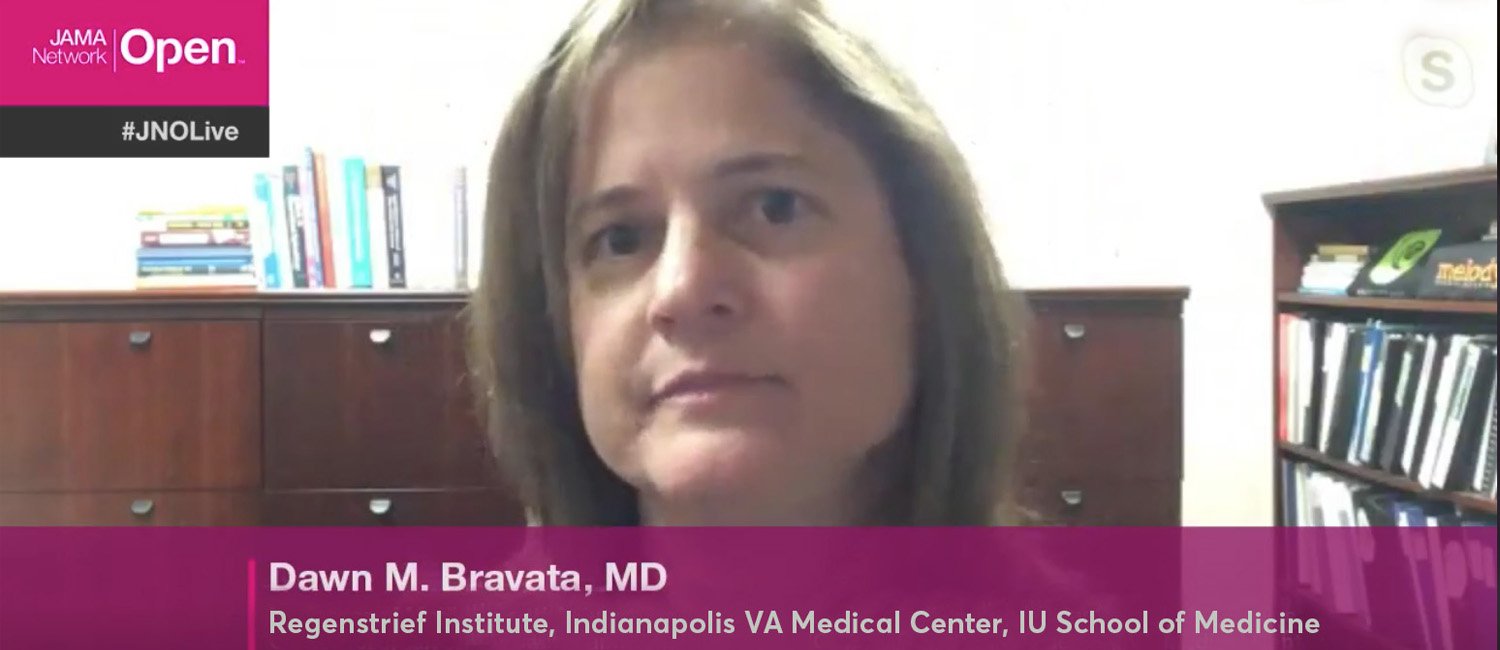Dr. Dawn Bravata interviewed on JAMA Network Open Live
Regenstrief Institute’s Dawn Bravata, M.D., an expert in stroke care, spoke to JAMA editors about her recent paper published in JAMA Network Open. The study examined the care processes associated with mortality and recurrent stroke in patients with TIA and non-severe strokes.
Dr. Bravata’s team examined 28 processes of care and defined six processes as “without-fail care” because they have been found to be effective in past studies and should be routinely available at most facilities. Those processes were: brain imaging, carotid artery imaging, hypertension medication intensification, high-moderate potency statin, antithrombotics, and anticoagulation for atrial fibrillation. Patients who received all of the processes for which they were eligible were classified as passing the “without-fail care” measure.
The study looked at more than 8,000 veterans who received VA care in an emergency or inpatient setting from October 2010 to September 2011.
The findings of the paper concluded that without-fail care — including the six readily available processes — was associated with lower odds of death but not lower recurrent stroke rates. Dr. Bravata and her team recommend healthcare systems prioritize patients with TIA or non-severe stroke and provide them with all the without-fail care processes they are eligible for.
Dr. Bravata discussed the study and its implications, answering questions from the hosts of JAMA Network Open Live. Watch the clips.
Study background and method
The key finding
The difference in quality of care for TIA and stroke
The VA has improved its quality of care since 2010/2011. What is the relevance of this data?
Seeing a neurologist within 24 hours is linked with better mortality rates
Neurologists and hypertension management
The processes are associated with lower risk of mortality but not stroke reduction
Watch the entire interview:
In addition to Regenstrief, Dr. Bravata is a core investigator at the Veterans Affairs Health Services Research and Development Center for Health Information and Communication, Richard L. Roudebush VA Medical Center, co-principal investigator, VA HSR&D Stroke Quality Enhancement Research Initiative, and a professor at Indiana University School of Medicine.










